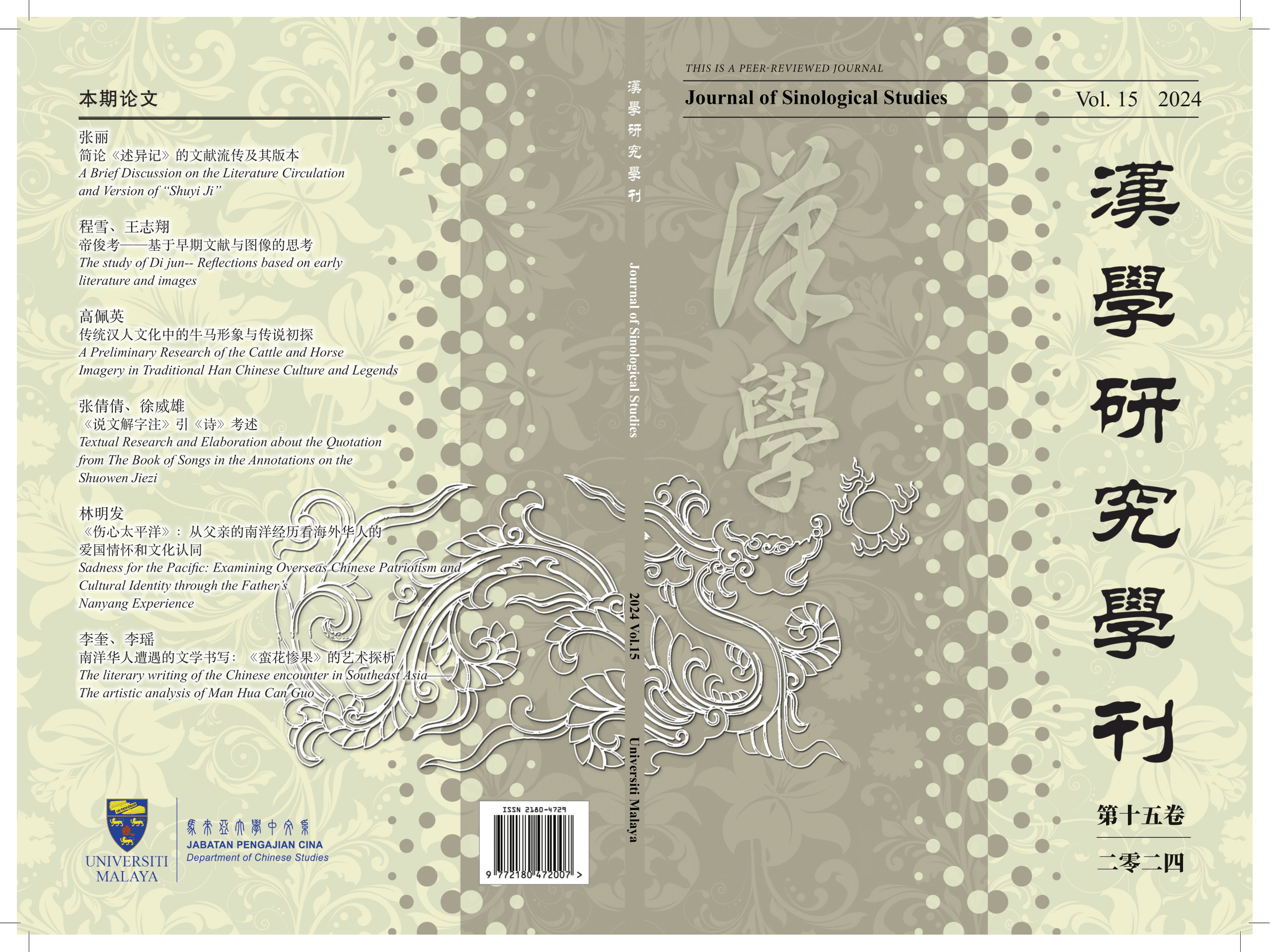《伤心太平洋》:从父亲的南洋经历看海外华人的 爱国情怀与文化认同
Sadness for the Pacific: Examining Overseas Chinese Patriotism and Cultural Identity through the Father’s Nanyang Experience
Abstract
王安忆(1954-)的家族历史源自南洋,约在1880-1890 年间由曾祖母带着祖父从福建同安移民新加坡。这段历史在她的父亲王啸平(1919-2003)时期才逐渐显现。对于这段历史的陌生感与在中国社会中的身份困境,促使王安忆在创作中探寻自我与家族的根源。她的作品如《小鲍庄》(1985)和〈我的来历〉(1985)以“我从哪里来”为主题,反映了中国文坛的寻根文学思潮。寻根文学是对文革后文化精神的修复,而王安忆的《伤心太平洋》(1993)通过描写父亲的南洋经历,展现了家族历史的层层回溯,也反映了中国现代史的变迁。王安忆在《伤心太平洋》中将父亲的形象既作为历史的真实反映,又作为虚构的创作素材来展示,实现了对家族历史记忆的再现。本文尝试探讨《伤心太平洋》中父亲南洋形象的塑造,研究其对海外华人爱国情怀及对中国的集体想象的影响,并通过理论视角深入理解父亲形象的历史意义。
Wang Anyi (1954 – ) traces her family history back to Nanyang, where her great-grandmother brought her grandfather from Tong'an, Fujian to Singapore between 1880 and 1890. This history only began to take shape during the time of her father, Wang Xiaoping (1919–2003). The unfamiliarity with this historical background and the identity issues she faced in Chinese society inspired Wang to explore her own and her family's origins in her literary works. Her novels such as Little Bao Village (1985) and the short story My Origins (1985) center on the theme of "Where do I come from?", reflecting the Chinese literary trend of “ root-seeking ” literature. This trend represents a cultural and spiritual restoration following the Cultural Revolution. Wang’s Sadness for the Pacific (1993) uses her father’s Nanyang experiences to depict a layered exploration of family history and changes in modern Chinese history. Wang in Sadness for the Pacific presents her father's image as both a true historical reflection and a fictional creation, achieving a reconstruction of family historical memory. This paper explores the depiction of the father’s Nanyang experiences in Sadness for the Pacific, examining its influence on overseas Chinese patriotism and collective imagination towards China, and offers a theoretical perspective to understand the historical significance of the father’s image.
Downloads


